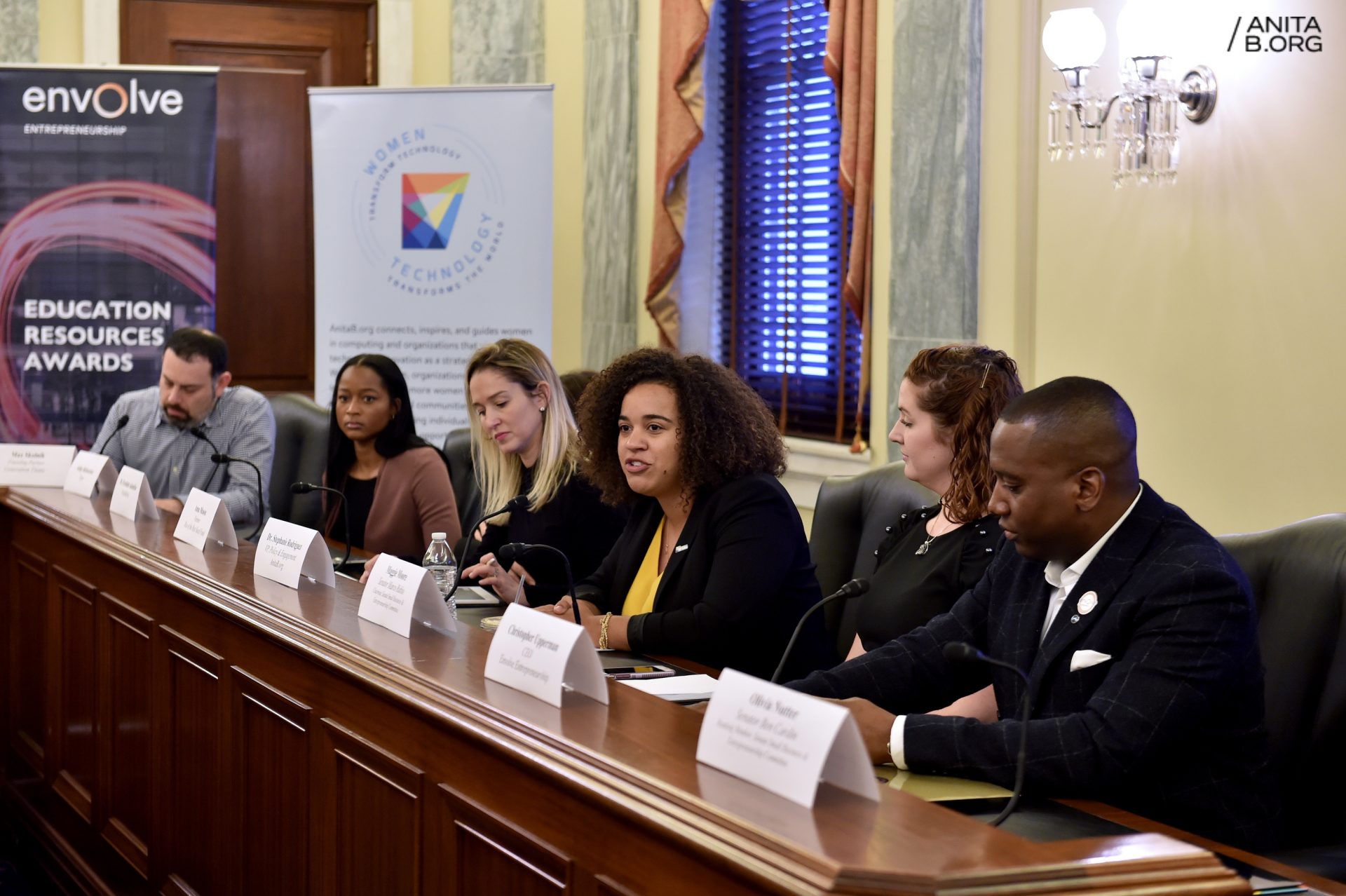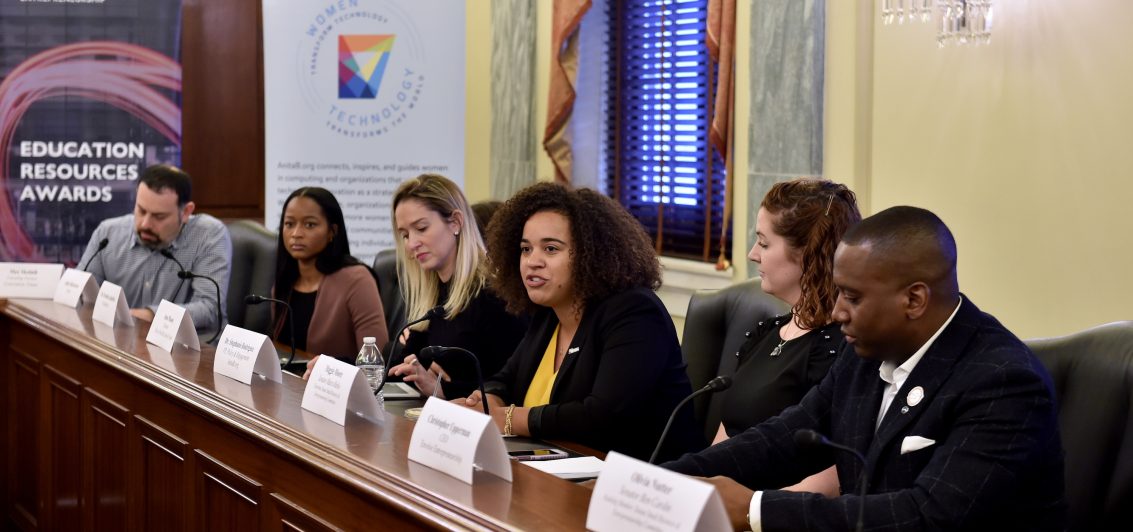Last month, the House introduced the JROTC Cyber Training Act, a bipartisan legislation that will direct the Department of Defense to enhance computer science and cybersecurity education for students in the Junior Reserve Officers’ Training Corps (JROTC).
The bill was introduced by Reps. Lizzie Fletcher (TX-07), Rob Bishop (UT-01), Jackie Speier (CA-14), Conor Lamb (PA-17), and Michael Waltz (FL-06) and represents a bipartisan acknowledgement of the crucial role computer science skills play in emerging national security interests. It boasts support from leaders in the computing education space as well as tech industry giant and valued AnitaB.org Partner Company Intel, whose Chief Diversity and Inclusion Officer and VP of HR Barbara Whye recently endorsed the bill in her congressional testimony to the House Science Committee.
JROTC programs operate through cooperative agreements between the services and schools, and feature fitness, academic, and life skills activities. The JROTC Cyber Training Act would add programs that train JROTC participants in computing, cyber security, and related technical skills during high school.
According to the bill’s authors, the Department of Defense (DOD) reports that 30% of JROTC cadets join the military after high school or college, representing a significant workforce yield from the program. The growing need for individuals within the military with technical skills also means that the DOD needs to compete with tech employers for applicants with computer science and cyber training.
Why It Matters
JROTC programs serve a diverse cohort of thousands of students all over the country. The Army JROTC reports that their students are approximately 40 percent females and 50 percent minorities. Adding programs that focus on computer science and cyber skills early exposes students to technical skills and career paths, regardless of whether or not they intend to enter the military after high school graduation.
For those who do choose to enter the military, the connection to the STEM industry is outsized. Individuals with military experience are more likely than their civilian counterparts to enter a STEM field.
According to one study being conducted at the University of Alabama – Huntsville, women with military experience are 41 percent more likely to go into STEM fields than “comparable civilians.” The researchers point out that this number includes higher rates of STEM field entry in some cases than males with military experience. Making connections early between technical skills and military experience has potential to deepen that trend, and sets veterans up for a myriad opportunities when they return to the civilian workforce.
What Next
The bipartisan nature of this bill and the tie-in to national security interests make it likely to succeed in the House. If you support the JROTC Cyber Training Act, you can contact your representative in the House and encourage them to also sign on to the bill.
Read more posts from the thread Your Guide to the 7 Most Sought-After Tech Skills This Year


